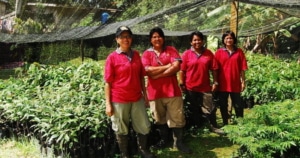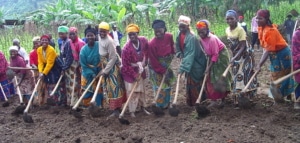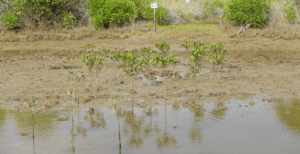Mangrove Action Project
The Mangrove Action Project (MAP) collaborates with local governments, grassroots NGOs, researchers, and communities who live near mangrove forests to protect and restore these ecosystems.
Mangrove Action Project (MAP) works with mangrove forest communities, grassroots NGOs, researchers and local governments to conserve and restore mangrove forests and related coastal ecosystems.
Mangroves are found in the coastal regions of more than 120 countries and represent some of the most biodiverse habitats on the planet, offering a sheltered nursery for tropical fish and crustacean species and a permanent home to enigmatic and endangered fauna. Mangroves play a critical role as the ‘roots’ of the ocean – the intricacy of their interactions with coral reefs and seagrass beds are only now being understood. These blue forests also absorb up to 5 times more carbon than terrestrial forests, as well as providing a host of tangible community benefits, with fishing communities relying on the species which mature and reside here, while the forests also supply an array of non-timber products, many of which are of cultural as well as economic value.
Despite this, mangrove deforestation continues apace. They are being cleared at between three and five times the rate at which other forests are being lost. It is estimated that mangroves have declined by as much as 35% since 1980, globally.
Synchronicity Earth is supporting MAP Asia to train two local communities in Thailand and Myanmar to restore mangroves in abandoned shrimp ponds and become stewards of the mangrove forests on which they depend. MAP is helping these communities to develop supplementary livelihoods around mud-crab culture and apiculture (bee-keeping) which are carefully selected based on community resources, skills, location and local markets. MAP Asia employs Community-based Ecological Mangrove Restoration (CBEMR) to restore these unproductive zones to healthy ecosystems benefiting the environment, protecting communities from disaster and sustaining their fisheries livelihoods.





